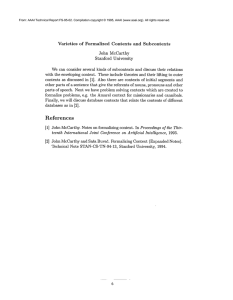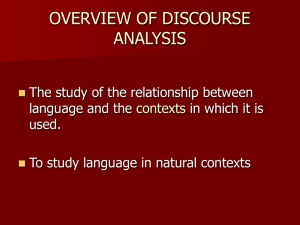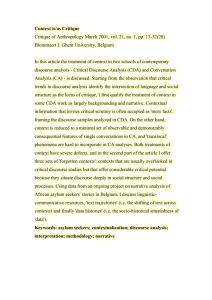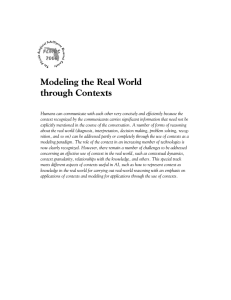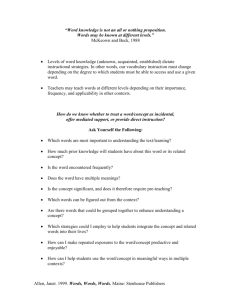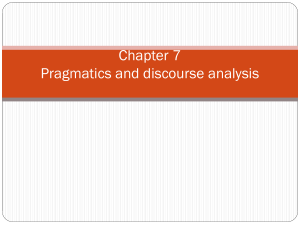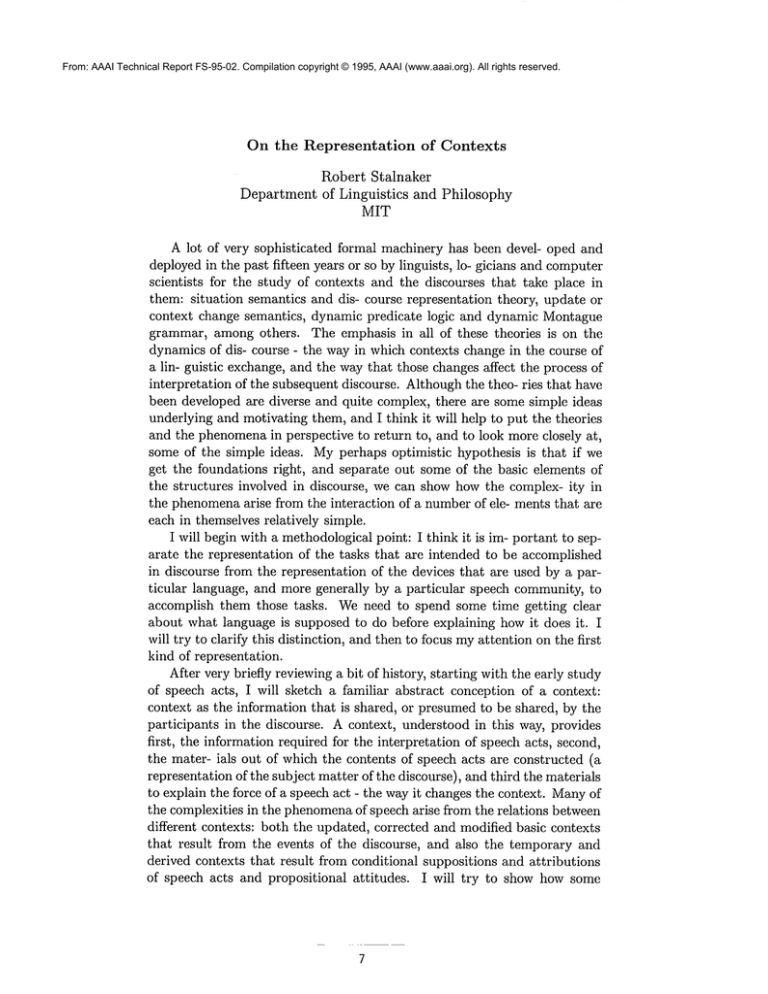
From: AAAI Technical Report FS-95-02. Compilation copyright © 1995, AAAI (www.aaai.org). All rights reserved.
On the
Representation
of Contexts
Robert Stalnaker
Department of Linguistics and Philosophy
MIT
A lot of very sophisticated formal machinery has been devel- oped and
deployed in the past fifteen years or so by linguists, lo- gicians and computer
scientists for the study of contexts and the discourses that take place in
them: situation semantics and dis- course representation theory, update or
context change semantics, dynamic predicate logic and dynamic Montague
grammar, among others. The emphasis in all of these theories is on the
dynamics of dis- course - the way in which contexts change in the course of
a lin- guistic exchange, and the way that those changes affect the process of
interpretation of the subsequent discourse. Although the theo- ries that have
been developed are diverse and quite complex, there are some simple ideas
underlying and motivating them, and I think it will help to put the theories
and the phenomenain perspective to return to, and to look more closely at,
some of the simple ideas. Myperhaps optimistic hypothesis is that if we
get the foundations right, and separate out some of the basic elements of
the structures involved in discourse, we can show how the complex- ity in
the phenomenaarise from the interaction of a number of ele- ments that are
each in themselves relatively simple.
I will begin with a methodological point: I think it is im- portant to separate the representation of the tasks that are intended to be accomplished
in discourse from the representation of the devices that are used by a particular language, and more generally by a particular speech community, to
accomplish them those tasks. We need to spend some time getting clear
about what language is supposed to do before explaining how it does it. I
will try to clarify this distinction, and then to focus myattention on the first
kind of representation.
After very briefly reviewing a bit of history, starting with the early study
of speech acts, I will sketch a familiar abstract conception of a context:
context as the information that is shared, or presumed to be shared, by the
participants in the discourse. A context, understood in this way, provides
first, the information required for the interpretation of speech acts, second,
the mater- ials out of which the contents of speech acts are constructed (a
representation of the subject matter of the discourse), and third the materials
to explain the force of a speech act - the wayit changes the context. Manyof
the complexities in the phenomenaof speech arise from the relations between
different contexts: both the updated, corrected and modified basic contexts
that result from the events of the discourse, and also the temporary and
derived contexts that result from conditional suppositions and attributions
of speech acts and propositional attitudes. I will try to show how some
relatively natural assumptions about the relations between different contexts
can help to resolve some of the puzzles concern- ing quantifiers, anaphora,
conditionals, and intentional identity that have preoccupied theorists in this
area.


